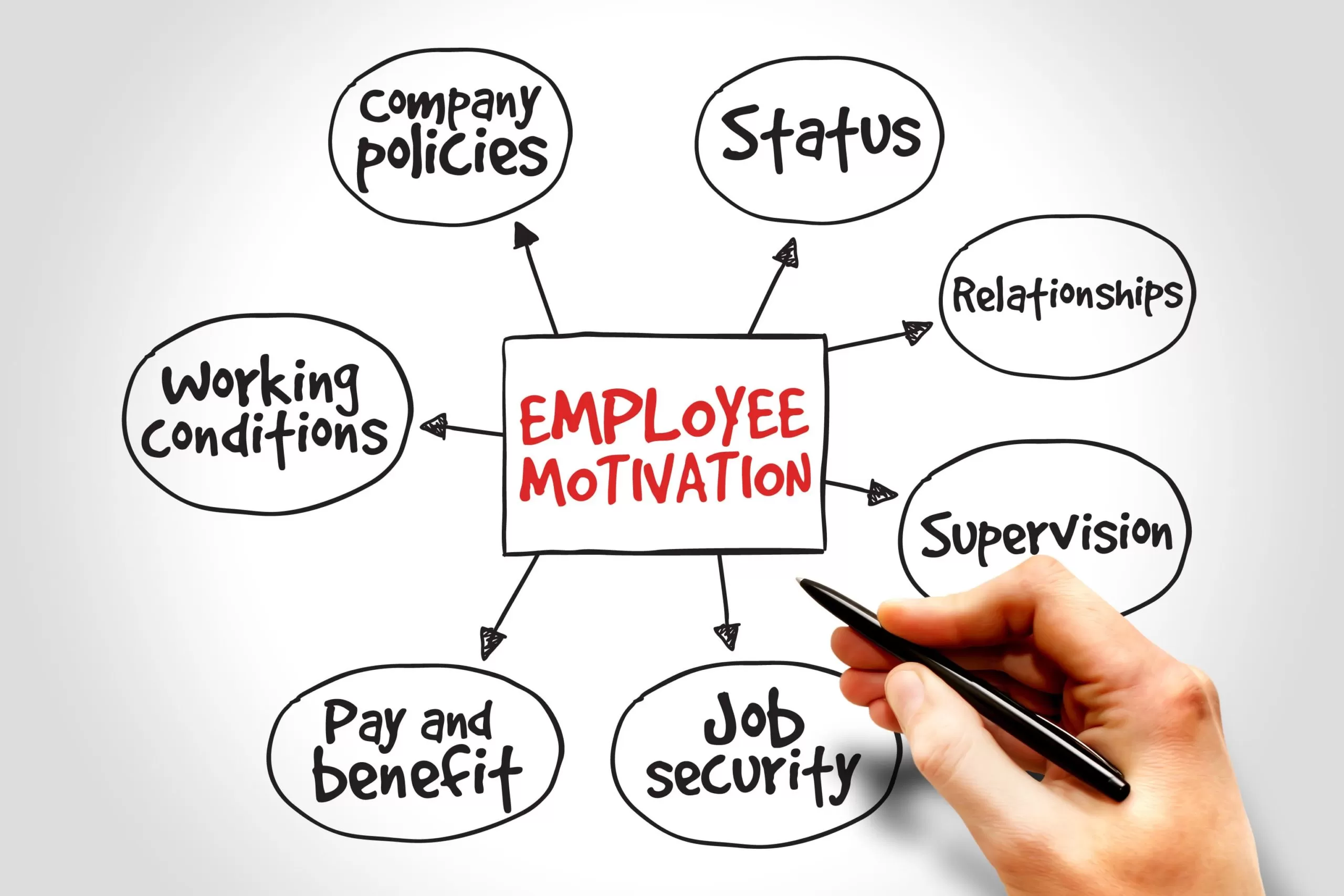Although motivating employees is important for companies, knowing how to motivate employees can be difficult. Different employees have different things that motivate them to work harder and better. Some are motivated by recognition while others are better motivated by financial rewards. What motivates one employee may fail to motivate another. Employee motivation is even more complicated because what motivates an employee may not always motivate that employee. If a major change occurs in an employee’s personal life, that may affect what employee motivation methods work.
This doesn’t mean that you can’t create a plan for motivating employees. Knowing how to motivate employees to work harder can increase company profits as employees become more productive. But what are the best ways to motivate employees?
Offer Financial Incentives
The employee motivation that is most commonly cited in the workplace is money, after all, that is the compensation that each employee is working for every day. While money as a motivator should not be ignored, at the root of this motivation is generally life security, things like an assurance of good health, the ability to pay bills, steady transportation.
When money as a motivation for employees is reviewed from a larger picture perspective it can be easier to see that things like a company car or improvements in insurance offerings may actually motivate better than a simple raise, in some cases. Taking the time to understand employee’s financial motivations individually may help you as an employer to customize their compensation to their highest satisfaction.
Recognize Employee Efforts
Even if individuals are not employed at their dream job, most people have an inherent drive to be recognized for their efforts. Recognition as a motivator may vary greatly from one employee to the next, however, with one employee’s productivity increasing with recognition and another employee’s productivity decreasing with recognition. Only by working closely with employees is it possible to assess how one will respond to recognition.
Recognition can also vary in form, which may spur different reactions. While one employee may shine after being recognized on a company job board in front of other employees, another may feel embarrassed at the attention and seek to avoid the spotlight in the future. Individual recognition, such as a simple “Well done!” may also be enough for some and not enough for others.
Offer Opportunities for Advancement
The ability to advance to a higher position, earn better pay, and grow with a company can be a powerful source of motivation. Not all employees have the same advancement goals, however, so finding out what is behind an employee’s drive to advance can help you to gear their training and daily assignments towards helping them to satisfy their specific drivers. Some employees may wish to advance to a position that offers greater flexibility in work hours, while others may wish for status or more control.
Trust Your Employees
Employees work better when they know they’re trusted. Showing that you have confidence in their abilities to get the job done will go a long way. Managers don’t need to micromanage employees to motivate them. In fact, micromanaging can actually have the opposite effect. Employees are adults who are capable of working on their own, not children in need of a babysitter. It’s better to trust employees to do their jobs well and more closely monitor only employees that have proven they need more supervision.
Gamify Tasks
Not all rewards need to be financial. Turning something like training into a game where employees earn points or badges for completing certain tasks can help to motivate employees. Gamification can turn what would otherwise be a mundane task into a friendly competition. Employees can compete either against each other or against themselves.
Encourage a Work/Life Balance
Enjoyment and fulfillment both stem from a place of balance, in which employees feel that they are able to meet their outside needs as well as their work needs. To help employees enjoy their job, it is important to truly understand how content an employee is with their work/life balance and how meaningful they feel their work is. Employee satisfaction surveys that ask specific questions about how well employees feel their schedule allows them to take care of outside needs and how important they feel their work is can help with optimizing this motivator.
Help Make a Difference
More and more, employees are citing the impact that their work has on the environment and society as motivational drivers. Feeling that you are making a difference in the world can be a powerful motivator. By taking the time to align company goals with social causes and then communicate the impact to employees can be more motivating than many employers understand. Nurturing a culture of caring can help employees to feel more content and motivated.
Apply Motivators Equally
Applying rewards unequally is a quick path to demotivating employees that didn’t benefit. If employees see coworkers unfairly being rewarded while their own work goes unrecognized, they won’t be motivated to work so hard in the future. Ensure that effort is rewarded equally and make sure to look deeper for who contributed so that effort is appropriately rewarded.
Set Weekly Goals
It can be difficult for employees to see how they contribute to the company over the long term. Setting smaller weekly goals can help break down larger projects into smaller ones. Employees can gain satisfaction from meeting each goal and checking it off of the to-do list. Smaller goals are much more approachable and less intimidating.
Give Employees Purpose
Employees like to feel that their efforts are making a difference to the company. However, those at the lower end of the organization’s hierarchy may not be able to see how they contribute. Helping all employees understand how much their efforts really make a difference to the company can help provide them with greater purpose.
Communicate Transparently
Open communication can be a great motivator for employees. Keeping secrets can result in employees worrying or even fearing for their jobs. Transparency about decisions that are being made higher up can help employees feel more involved and valued. This, in turn, motivates employees to live up to that trust and value.
Ask for Employee Feedback
One way to find out what motivates employees is to ask them. Because what motivates each employee may be different, it’s a good idea to ask employees what would help them. Employee feedback can help direct your employee motivation efforts in the right way. Then, you can take that feedback and apply the right employee motivation techniques to your employees.
Get to Know Your Employees
Knowing how to motivate employees is easier when you get to know those employees. There are many different ways to motivate employees and knowing your staff can help you choose the right employee motivational ideas. Managers can take the time to learn how each employee works best. Spending one-on-one time with each employee can help you learn what their goals are so the company can invest in the professional development of their employees. Knowing that the company values their career and development is a powerful motivator.
Motivate on an Individual Basis
It can be tempting to try to motivate teams to work better. However, each team is made up of individuals, each of whom will have their own motivations. Motivating each individual so that they’re on the same page and have the same goal regarding the team will result in the team working better together.
Maintain an Open-Door Policy
Employees will be more motivated if they feel like their opinions are taken seriously by their bosses. Managers should have an open-door policy so that employees can share thoughts and ideas. This will help employees feel that they really have a stake in the company and that the company values their input.
Give Employees Leadership Opportunities
Employees will be more motivated to work hard if they feel that they have a stronger stake in that work. If an employee has the opportunity to lead a project or a meeting, then they’ll take more ownership of it. Having the opportunity to lead can also help employees feel more invested in their role in the company.
Is your company looking for a HRIS to manage employee incentives? We can help you find the software that will best suit your needs. Stop by our Software Match page to start your search.












